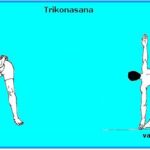Don’t Forget to Eat Your Fruits, Veggies and Popcorn?
The whole-grain treat the great choice for guilt-free snacking, researchers say.
Need a healthy snack? Consider passing the popcorn. Another review says the whole-grain treat contains more of the “best for you” antioxidants called polyphenols than some vegetables or fruits.
A number of polyphenols in popcorn were up to 300 milligrams every serving compared with 114 mg every serving of sweet corn and 160 mg for every serving for all fruits, as indicated by study findings to be presented Sunday at a meeting of the American Chemical Society in San Diego. This is because polyphenols are diluted in the 90 percent water that makes up many vegetables and fruits, whereas they are more concentrated in popcorn, which averages only about 4 percent water, the review creators said.
In the average U.S. diet, vegetables provide 218 mg of polyphenols every day and fruits provide 255 mg every day. One serving of popcorn would provide 13 percent of the average everyday intake of polyphenols per person in the United States, the Pennsylvania researchers said in a society news release.
The inspectors also found that the hulls of popcorn — the bits that tend to get caught in the teeth — have the highest convergences of fiber and polyphenols.
“Those hulls deserve more regard,” study creator Joe Vinson, of the University of Scranton, said in the news release.
However, salt, adding butter, Vinson warned, and other calorie-laden flavorings can turn this snack into a bucketful of trouble.
“Air-popped popcorn has the lowest number of calories, obviously,” Vinson said. “Microwave popcorn has twice the same number of calories as air-popped, and if you pop your own with oil, this has twice as many calories as air-popped popcorn. About 43 percent of microwave popcorn is fat, compared to 28 percent if you pop the corn in oil yourself.”
Vinson also included that eating popcorn should not be a reason to skip the fresh vegetables and fruits. Popcorn lacks the vitamins and other nutrients found in vegetables and fruits that are essential for good health.
Popcorn is the “only snack that is 100 percent natural whole grain. Every single other grain are prepared and diluted with other ingredients, and although cereals are called ‘whole grain,’ this simply means that over 51 percent of the weight of the product is whole grain,” Vinson said.
“One serving of popcorn will give more than 70 percent of the everyday intake of whole grain. The average person just gets about half a serving of whole grains a day, and popcorn could fill that gap in a very pleasant way,” he noted.
The review was funded by the university and received no money from the food industry. The information and conclusions of research presented at medical meetings should be viewed as preparatory until published in a peer-reviewed journal.



Facebook Comments